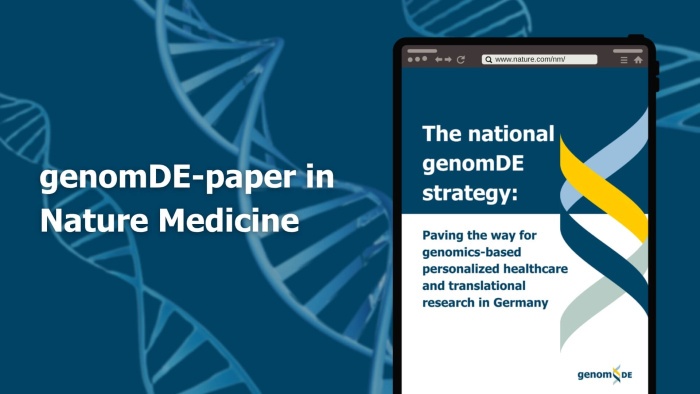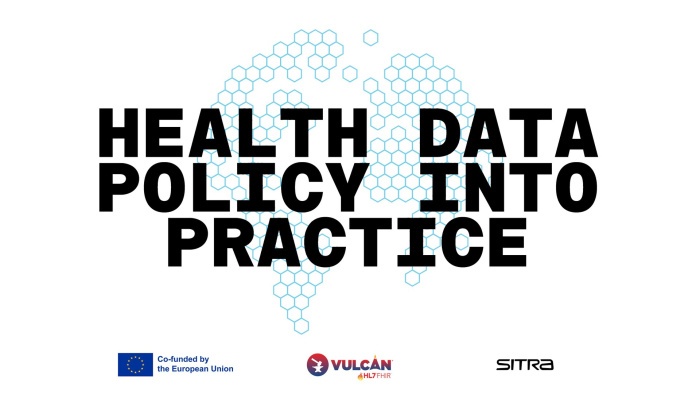Genome Sequencing in Germany: Challenges and Healthcare Benefits
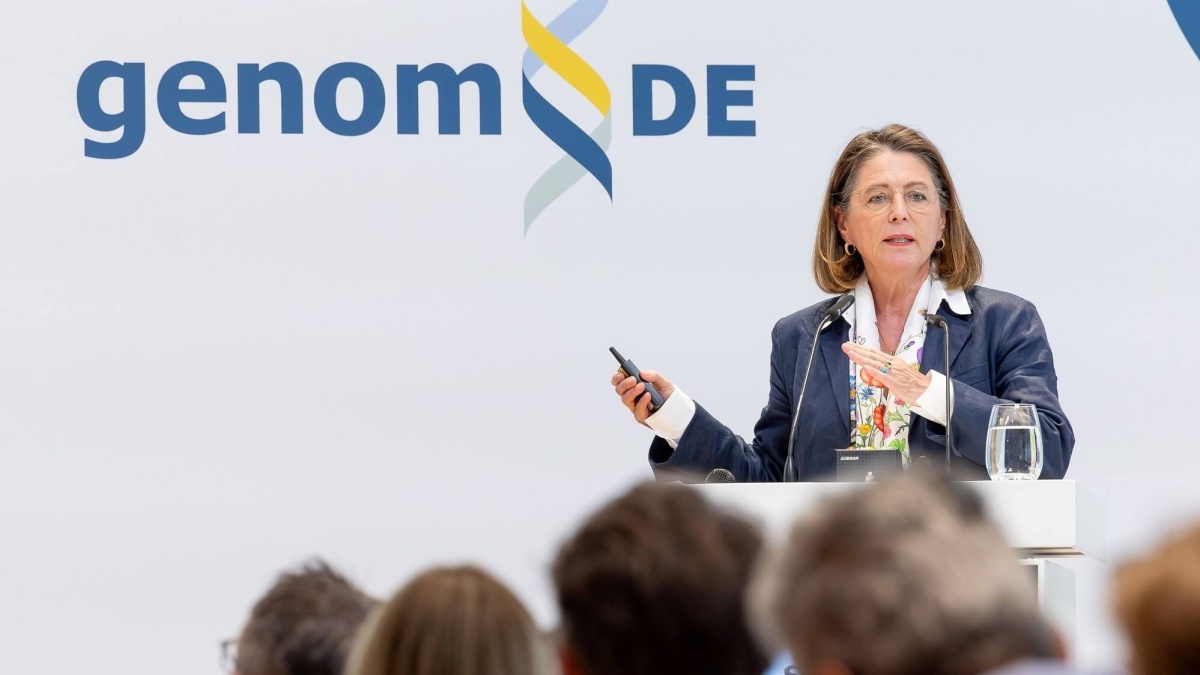
Prof. Dr. Rita Schmutzler, member of the TMF Executive Board, member of the genomDE steering committee, and coordinator of the German Familial Breast and Ovarian Cancer Consortium, at the 2nd genomDE Symposium 2023 © TMF
On July 6, 2023, in Berlin, experts discussed the challenges of genomic medicine in Germany and European initiatives with the symposium's guests themed " From people and molecules: perspectives on genomic medicine." The TMF - Technology and Methods Platform for Networked Medical Research as the coordinating body for the genomDE project and the genomDE consortium, consisting of leading medical networks of personalized medicine in Germany as well as patient representatives for the treatment of rare diseases and cancer, acting at federal level, welcomed guests from Sweden, Denmark, and Portugal, among others. They provided impulses for genomic medicine in the sense of a knowledge-generating form of care in Germany for the benefit of patients. This should be a process that improves care and research through mutual exchange.
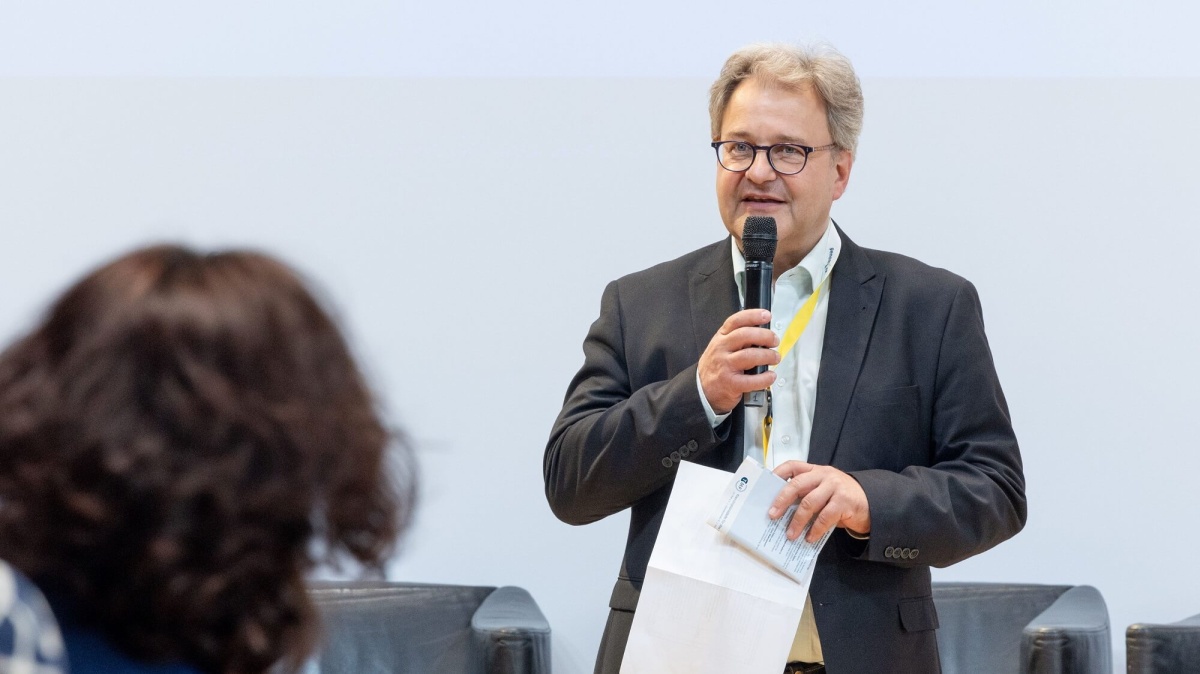
Sebastian Claudius Semler, Head of the Coordination Office for genomDE, at the 2nd genomDE Symposium 2023 © TMF
The focus was on themes such as the healthcare benefits of genome sequencing and a look at European initiatives and their experiences in research, healthcare, and patient benefits.
Another important topic was the discussion of the future data infrastructure and the associated data protection demands for secure data use and processing as part of the model project Section 64e SGB V. In the future, responsibility will lie with a federal authority—the Federal Institute for Drugs and Medical Devices (BfArM).
Sebastian Claudius Semler, Head of the Coordination Office for genomDE: "We are still eagerly awaiting the amendment of the model project § 64e SGB V, which, as we have heard, is to be integrated into the announced Health Data Utilization Act. Various legal issues need to be clarified in this context. Amongst other things, what will happen to the implementation of the research pseudonym.
For genomDE, the focus is now on the preparation and implementation of the model project. Important basics still need to be clarified before the start in the coming years: uniform consent, data protection, data harmonization, a practicable data infrastructure, and optimal information management for those affected.
Prof. Dr. Rita Schmutzler, member of the TMF Executive Board, member of the genomDE steering committee, and coordinator of the German Familial Breast and Ovarian Cancer Consortium emphasized: "The already established networks in the field of genome-based knowledge-generating care with their comprehensive databases are of great benefit for the timely start of the model project. This is because the already established infrastructures and data sets can be used. For this, the genomDE expert group will agree on core data sets that the networks can then make available within the framework of a FAIR infrastructure and a standardized syntax. FAIR stands for 'Findable, Accessible, Interoperable, Reusable.' The respective data should be easy to find, accessible, interoperable, and reusable, always under the requirement of responsible, data protection-compliant handling. To this end, close coordination with the medical informatics initiative is also planned, which will further promote data harmonization and the use of secondary data."
For Prof. Dr. Markus Nöthen, Director of the Institute of Human Genetics at the University Hospital Bonn, it is "... a major step forward that genome diagnostics with the sequencing of complete genomes will become part of everyday clinical practice starting in 2024. This will provide patients suspected of having a rare genetic disease with the best possible diagnostics."
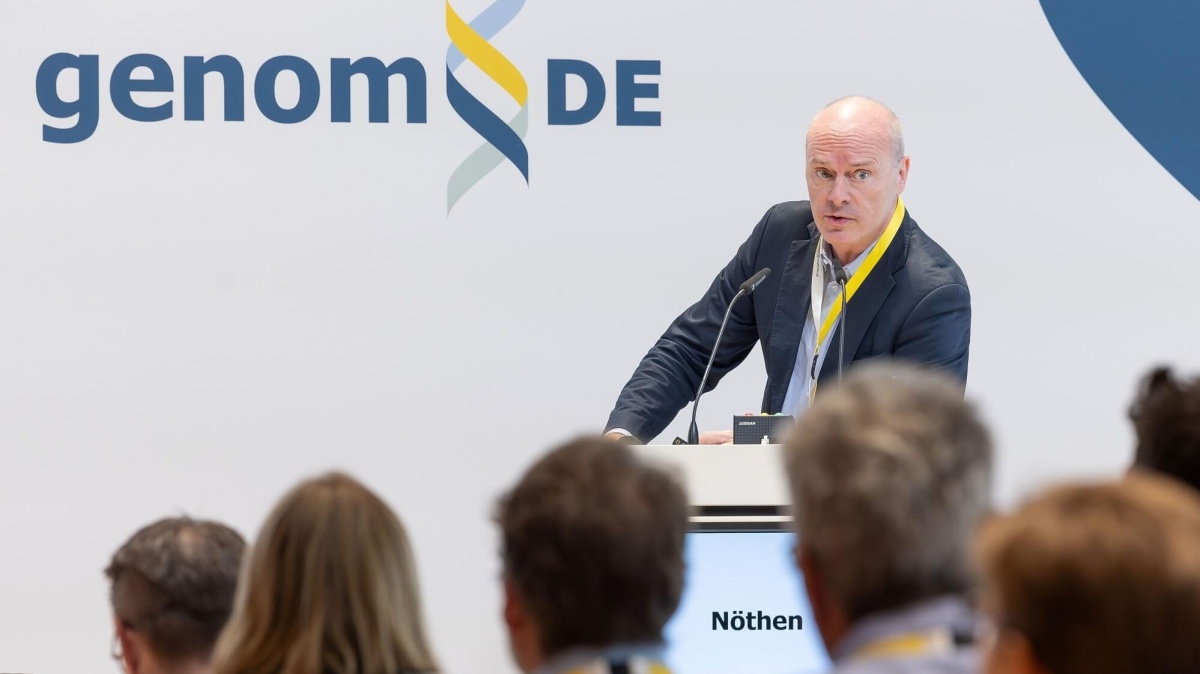
Prof. Dr. Markus Nöthen, Director of the Institute of Human Genetics at Bonn University Hospital. © TMF
About the Initiative for Medical Genome Sequencing and the Model Project § 64e SGB V
Patients and relatives affected by a rare disease or with a hereditary predisposition - who can benefit from genomic medicine to clarify their diagnosis, their cancer, or their risk of developing cancer - should be given access to this care. Genomic medicine can support prompt diagnosis, the use of targeted therapies and early disease prevention.
The legal basis for this was created as part of a pilot project in accordance with Section 64e SGB V. The pilot project will start clinical application starting in January 2024. The partners from research, healthcare, and patient representatives involved in the genomDE initiative are responsible for the content and structure of the project. At the same time, genomDE is intended to form an important component of a future research data infrastructure in the German healthcare system. The genomDE initiative is funded by the Federal Ministry of Health. The project started in October 2021 and will end in December 2024. genomDE is part of the national strategy for genomic medicine.
Impressions
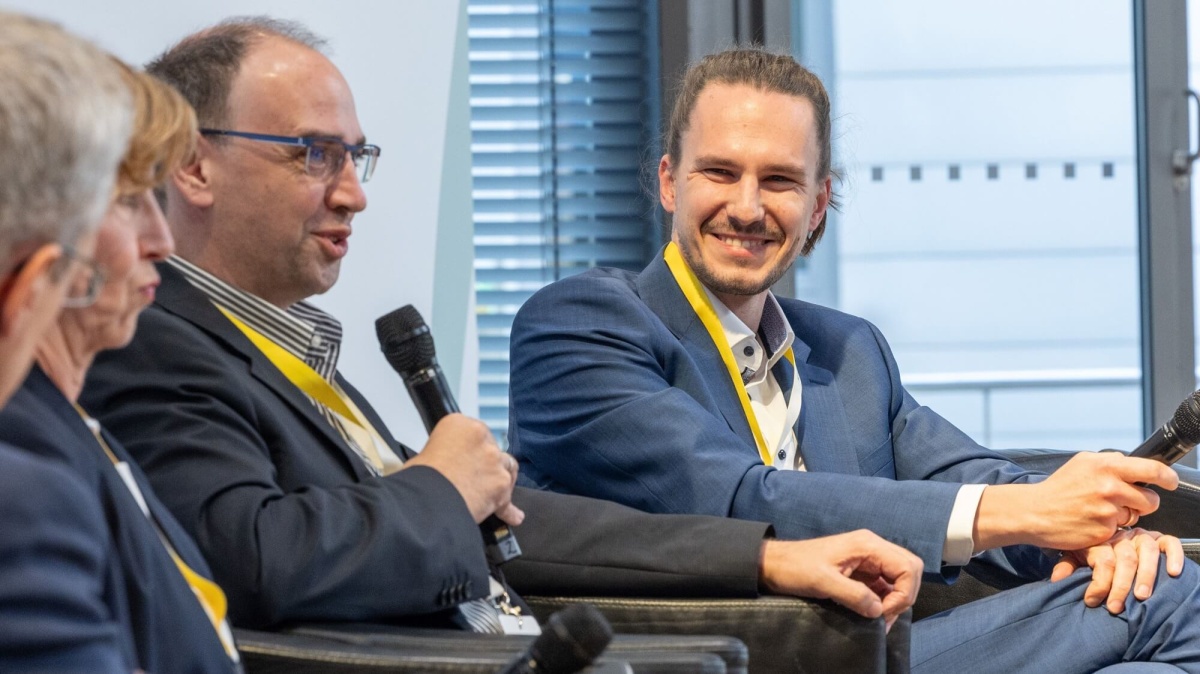
The closing panel of genomDe Symposium 2023 with Prof. Dr. med. Dipl.-Chem. Elke Holinski-Feder, Prof. Dr. Jürgen Wolf, Prof. Dr. Joachim L. Schultze, and Dr.-Ing. Jan Voges. © TMF
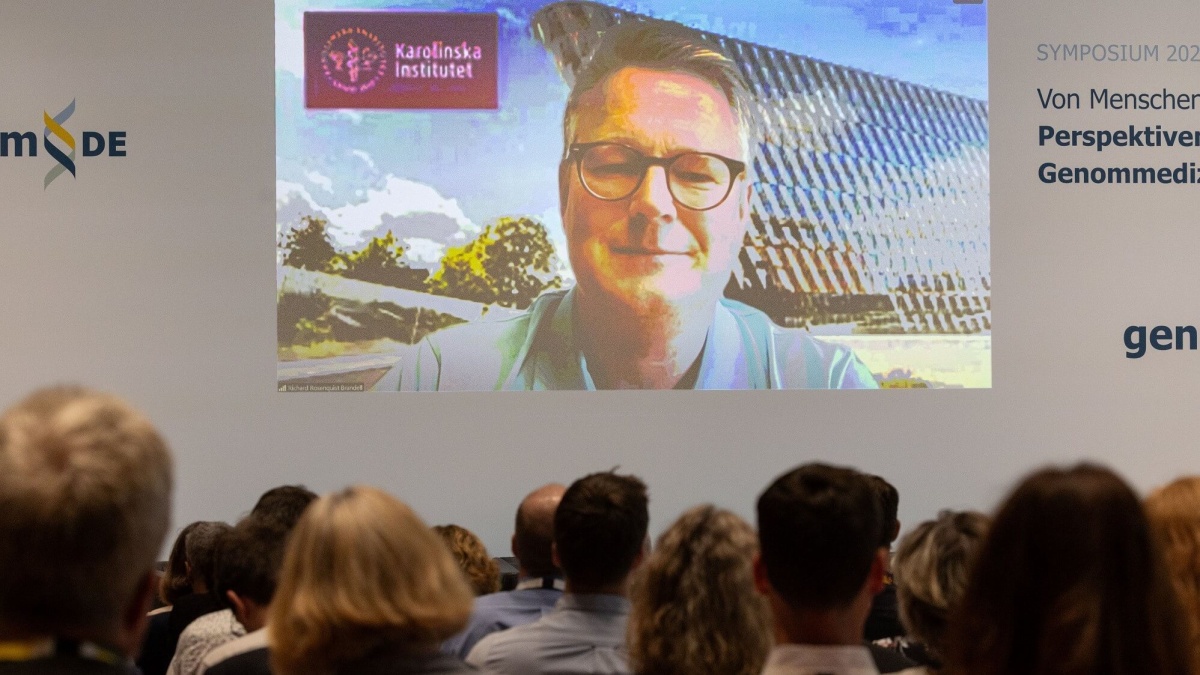
Prof. Richard Rosenquist Brandell, Sweden. © TMF
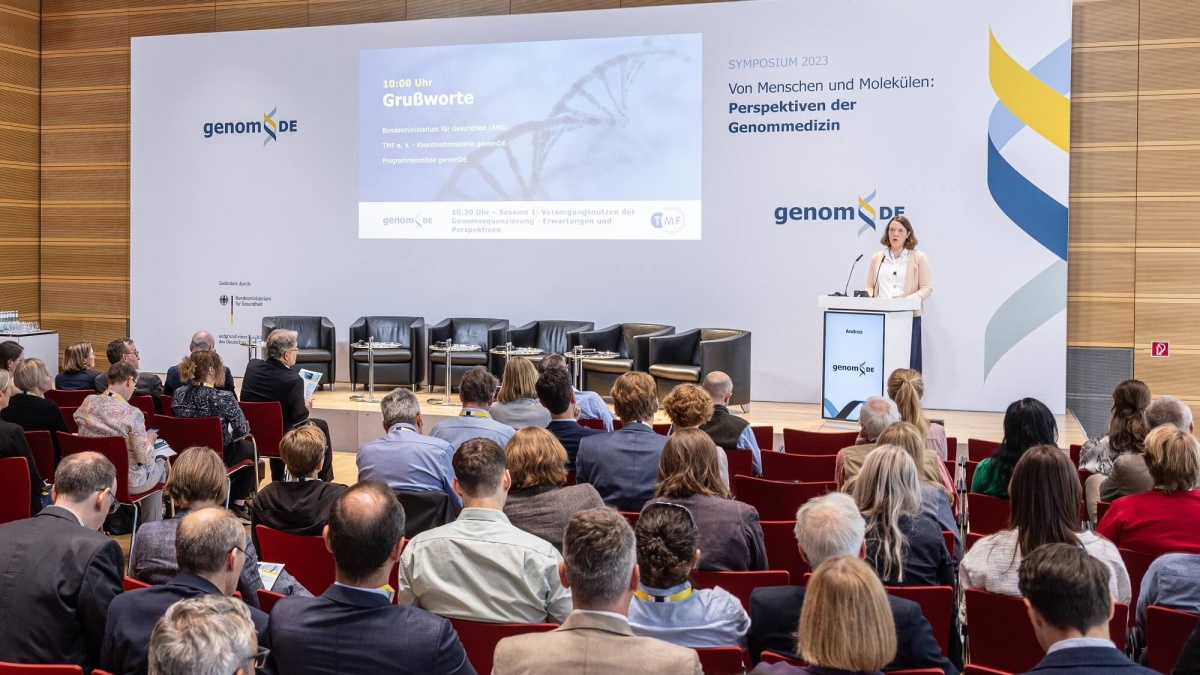
Dr. Dorothee Andres, BMG, at the 2nd genomDE Symposium 2023. © TMF
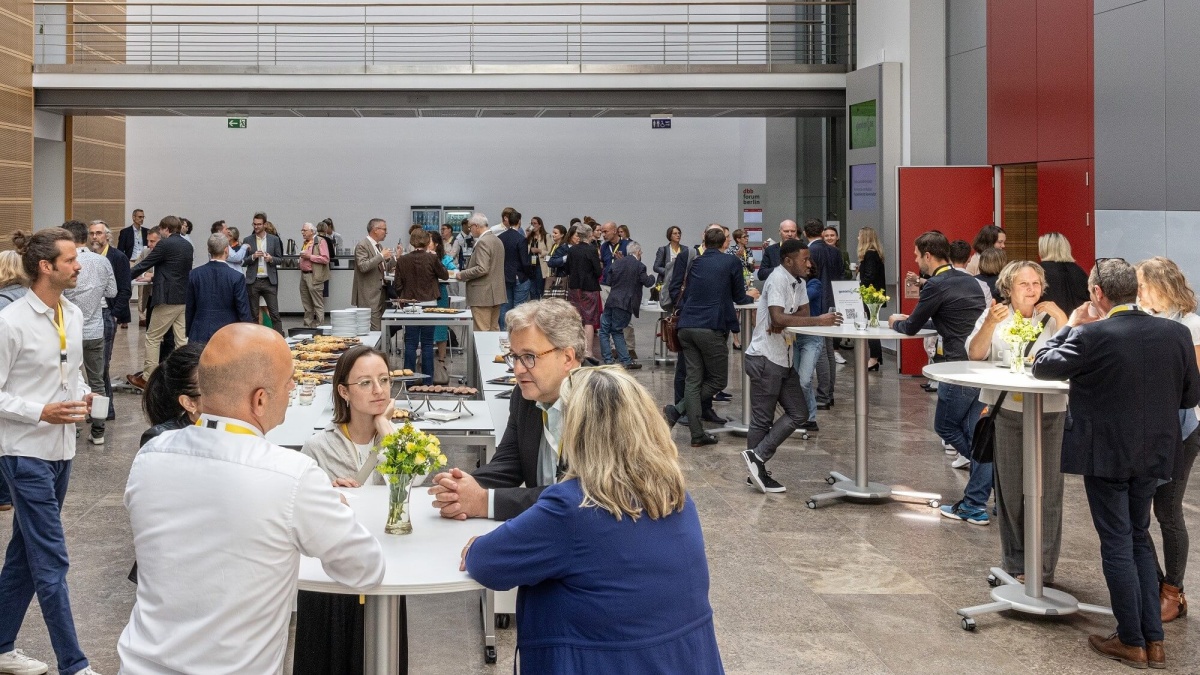
Break photo - genomDE Symposium 2023. © TMF

© TMF
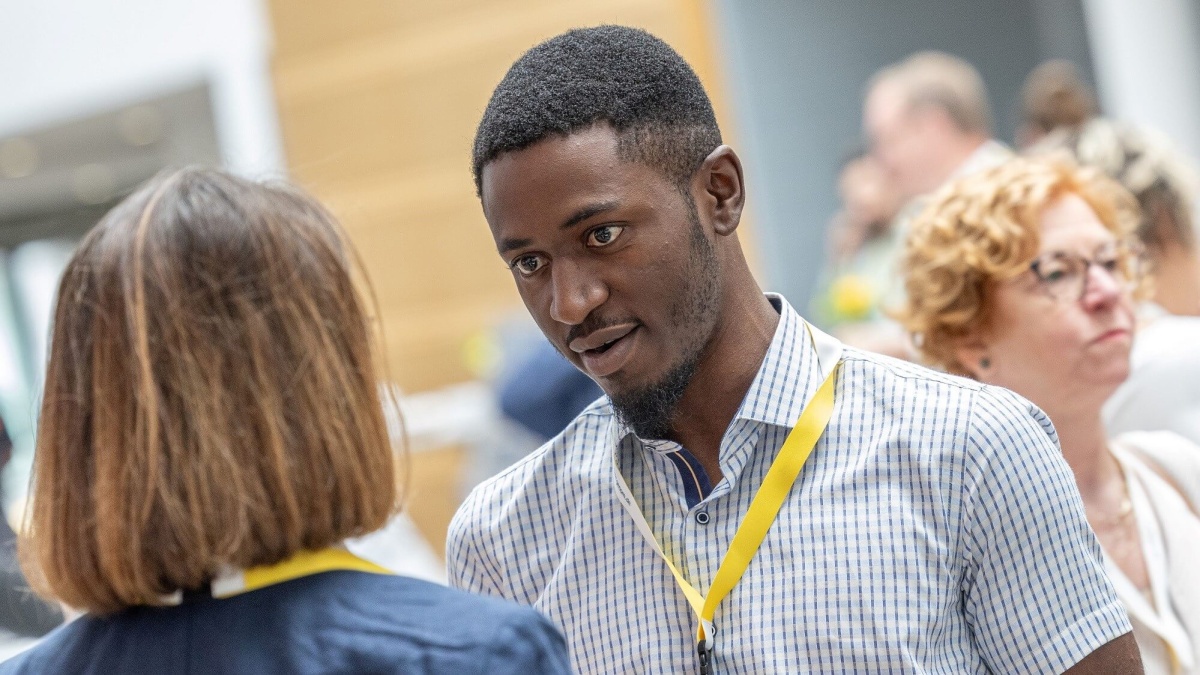
Break photo - genomDE-Symposium 2023. © TMF e.V.
Press Contact
Christine Fechner
TMF - Technology and Methods Platform for Networked Medical Research
Press & Public Relations genomDE
Charlottenstraße 42, 10117 Berlin
Phone: +49 (0) 30 − 22 00 24 769
E-mail: presse@tmf-ev.de
Further Information
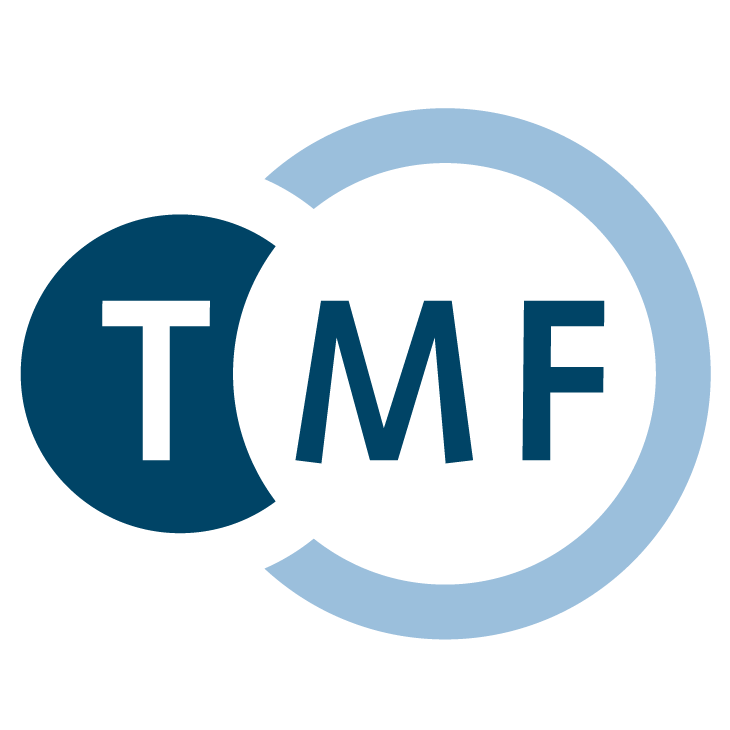
About the TMF
The TMF – Technology and Methods Platform for Networked Medical Research e. V. stands for research, networking and digitisation in medicine. It is the umbrella organisation for collaborative medical research in Germany, within which leading researchers exchange knowledge, jointly develop ideas and concepts, and shape the future of medical research in the digital age.
